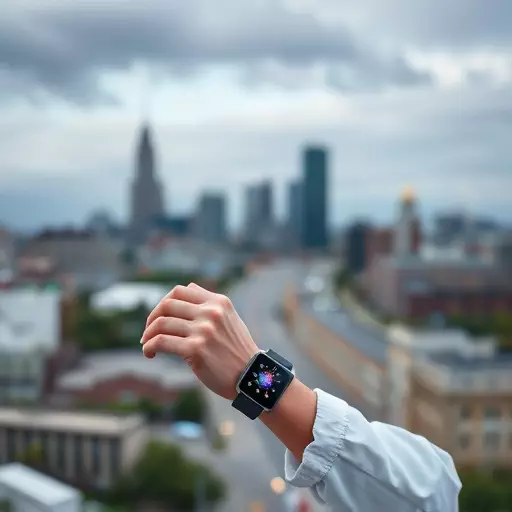Integrative Medicine in Dayton offers a revolutionary approach to heart health assessment by combining advanced techniques like assessing environmental toxin exposure with the use of wearable health trackers. This holistic practice provides hidden insights into cardiovascular risks by examining an individual's interaction with their environment, enabling healthcare professionals to tailor personalized care plans that go beyond conventional risk factors. Wearable trackers, integrated into these plans, offer real-time data on vital signs and activity levels, enhancing the accuracy of risk assessment and promoting proactive, dynamic heart health management.
“In the pursuit of optimal heart health, advanced cardiovascular risk markers play a pivotal role. Integrative Medicine in Dayton is revolutionizing tailored heart health plans by combining traditional wisdom with innovative approaches. This article explores three key components: assessing environmental toxin exposure using advanced diagnostics, leveraging wearable health trackers for real-time data, and their integral contribution to personalized cardiovascular wellness. By embracing these strategies, individuals can unlock comprehensive insights into their heart health.”
- Integrative Medicine in Dayton: Unlocking Comprehensive Heart Health Assessment
- Assessing Environmental Toxins: A Crucial Aspect of Personalized Care for Cardiovascular Wellness
- Wearable Health Trackers: Enhancing Tailored Heart Health Plans with Real-Time Data
Integrative Medicine in Dayton: Unlocking Comprehensive Heart Health Assessment

Integrative Medicine in Dayton offers a revolutionary approach to heart health assessment, unlocking comprehensive insights that go beyond traditional diagnostic methods. This holistic practice incorporates advanced techniques like assessing environmental toxin exposure through integrative diagnostics, providing valuable information about potential cardiovascular risks hidden beneath the surface. By examining an individual’s unique interaction with their environment, healthcare professionals can identify subtle factors contributing to heart health issues.
In addition to these innovative assessments, the integration of wearable health trackers into personalized care plans is transforming patient monitoring. These devices capture real-time data on vital signs and activity levels, allowing for a more nuanced understanding of an individual’s cardiovascular state. With this data, healthcare providers in Dayton can tailor heart health programs, ensuring that each plan is uniquely designed to meet the specific needs and risks of the patient.
Assessing Environmental Toxins: A Crucial Aspect of Personalized Care for Cardiovascular Wellness

In the realm of cardiovascular wellness, assessing environmental toxins is a crucial aspect of personalized care often overlooked but increasingly recognized as a vital component of integrative medicine in Dayton. Exposure to various environmental toxins can significantly impact heart health, contributing to advanced cardiovascular risk markers. Integrative diagnostics utilize methods like wearable health trackers to monitor and assess an individual’s exposure to these toxins, providing valuable insights for tailoring heart health plans.
By incorporating data from wearable devices that track vital signs and environmental sensors, healthcare professionals can gain a holistic understanding of a patient’s overall wellness. This enables them to create personalized strategies that go beyond traditional risk factors, addressing the unique toxicological footprint of each individual. Such an approach ensures that cardiovascular care is not just reactive but proactive, empowering folks to take control of their heart health in today’s complex environmental landscape.
Wearable Health Trackers: Enhancing Tailored Heart Health Plans with Real-Time Data

Wearable Health Trackers have emerged as powerful tools in the field of cardiovascular health management, particularly when integrated into tailored heart health plans. These devices go beyond traditional metrics by providing real-time data on various physiological parameters, offering a more comprehensive view of an individual’s cardiac well-being. By seamlessly tracking heart rate variability, physical activity levels, and even environmental toxin exposure through advanced sensors, wearable trackers enable healthcare professionals in Dayton to assess risks more accurately.
In the context of integrative medicine, these trackers play a pivotal role in personalized care. The data collected can be analyzed alongside other diagnostic tools, such as assessing environmental toxin exposure via integrative diagnostics, to create a holistic understanding of a patient’s heart health. This approach ensures that tailored plans are not just based on static measurements but dynamic, adaptive strategies that evolve with the individual’s lifestyle and environment.
